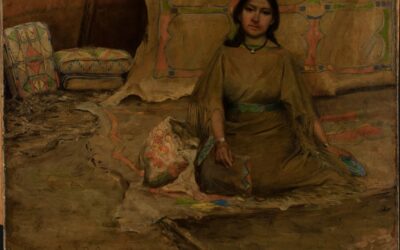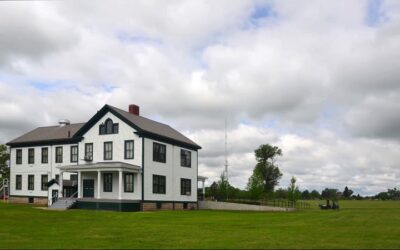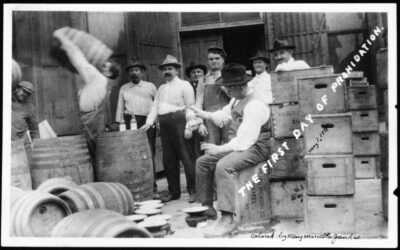By David L. Bristow
Ántonia Shimerda is perhaps Willa Cather’s most beloved fictional character, the namesake of her 1918 novel, My Ántonia.
Cather based Ántonia on Anna Pavelka, shown here. Born in Bohemia (Czech Republic), Pavelka immigrated in 1880 to Webster County, Nebraska, with her parents and siblings. Her connection to My Ántonia became nationally known when she was pictured in a photo essay, “Willa Cather Country,” in a 1951 issue of Life magazine.
The article got the attention of Jaroslav Drábek (right), an editor with Voice of America, a US government-sponsored media agency. Drábek had his own immigration story. Formerly an attorney in Czechoslovakia, he had been involved in the resistance against Nazi Germany, survived Auschwitz, and later prosecuted Nazi war criminals before moving to the United States.
Drábek interviewed Pavelka in their shared native language. The conversation was recorded for broadcast to forty-six countries on the Voice of America network. Although Cather’s novel was set in pioneer times, the radio interview took place in a Cold War context. The US was fighting the Korean War, and Czechoslovakia was ruled by a Communist government as a satellite state of the Soviet Union.
These issues probably weren’t addressed directly in the interview (no copy of the program is known to exist). It’s said that Pavelka told stories of her life, and in the photo she and Drábek both seem to be looking at a small framed photo of Cather. It was Cather’s world—and Pavelka’s—that went out over the airwaves as the Voice of America.
(Photo: Willa Cather Foundation, Red Cloud, Nebraska, RG1951-0-211)
This article first appeared in the Summer 2019 issue of Nebraska History Magazine.





